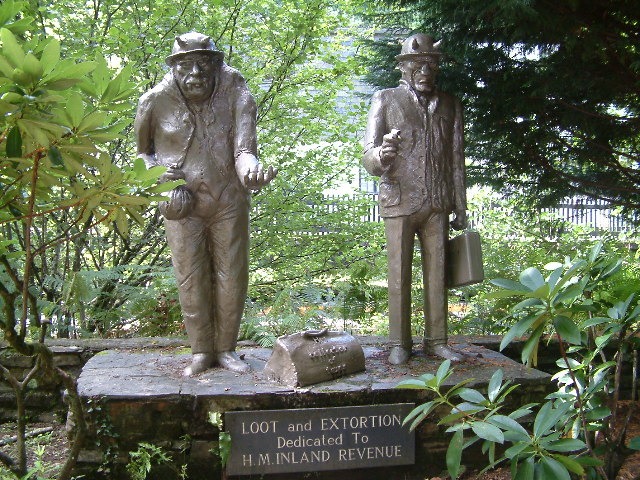The Dark Side of Open-Ledger Technology: How Bitcoin Enables a New Age of Extortion
There is a new class war / tech-based French revolution brewing.
BLOCKCHAIN


Bitcoin and other open-ledger cryptocurrencies were created with the promise of financial freedom and decentralization. However, the same transparency that makes blockchain technology revolutionary also makes it inherently dangerous for individuals with significant holdings. The simplicity of extortion, combined with the inability to reverse transactions, makes Bitcoin a high-risk asset for those in the public eye.
The Security Dilemma for High-Net-Worth Bitcoin Holders
Imagine a high-profile Bitcoin advocate—someone like Tyler Winklevoss, or any equivalent crypto millionaire—who openly speaks about Bitcoin on social media. Their wealth is traceable on the blockchain, and while they might be able to afford some level of personal security, maintaining a 24/7 protection detail is neither financially nor practically feasible. Being a known "Bitcoin maxi" in the digital age is akin to painting a target on one's back.
The situation is comparable to that of a U.S. president being constantly surrounded by the Secret Service—except without the institutional security infrastructure. Living with constant protection is, in itself, a form of imprisonment. And with the rise of organized crime, the threat is no longer theoretical; it is inevitable.
Extortion is Easier Than Ever
Cryptocurrency’s open-ledger design makes it trivial to determine someone’s Bitcoin holdings if their address is known. However, the real danger goes beyond merely having a public wallet. A high-net-worth individual can be extorted into converting traditional assets—such as real estate, cash, or stocks—into Bitcoin or another cryptocurrency, which can then be laundered through privacy-centric currencies like Monero. You don't need Coinbase or Gemini to change BTC to Monero... just google "Bitcoin to Monero exchange" or many others like "ETH to XMR" and you'll find there is no shortage of ways to break traceability. No need for tumblers. The rich and Bitcoin maxi's need to shut the fuck up. There's a new tech-based French Revolution brewing. You and everything you care about can be touched and those bonds make you vulnerable. Don't want a red room like video of your wife posted on the darknet and find it's way to a gore site? Do as they say. Although sites like Ancestry don't give the names of minors in family trees, often it can be found on search engines. Ancestry will disclose the names of parents and other relatives who aren't minors. Then, from there many times background check sites or services disclose information such as someone's physical address. It's not that hard to locate people these days no matter how hard one tries to conceal it.
A criminal only needs an incentive to act. If a gang or cartel identifies a wealthy individual with traceable crypto holdings, they can issue an untraceable ransom demand, leveraging threats to family, loved ones, or business partners. Unlike traditional banking systems where transactions can be frozen or reversed, once Bitcoin is sent, it is gone forever.
The Role of Organized Crime and Gangs
The U.S. government recently began labeling Mexican cartels as terrorist organizations, but these cartels, along with various domestic and international crime syndicates, are already well-entrenched within American borders. Groups such as the Latin Kings, MS-13, Chinese Triads, and white supremacist gangs like the Aryan Brotherhood are well-versed in criminal enterprise. Moreover, prison-based shot-callers—who have endless time to devise schemes—could easily organize crypto-based extortion plots.
For a mere $10,000, a criminal could hire someone to abduct a high-profile individual’s child, hide them in a shipping container, and send body parts as proof of life. A simple anonymous email to a CEO’s assistant would make the terms clear: sell assets, convert to Bitcoin or Monero, and send the funds. There is no need for a complex financial paper trail—just a single irreversible transaction.
The Future of Crypto Extortion
While traditional financial institutions have anti-money laundering (AML) policies and fraud detection systems in place, decentralized cryptocurrencies provide an entirely new playing field for organized crime. Casinos, long a bastion of money laundering, have already been targeted by criminals, yet the world of high-profile crypto holders remains largely untouched—so far.
It is only a matter of time before the ruling class realizes the full extent of this vulnerability. Without intervention, the safety of crypto millionaires and billionaires will continue to degrade as criminal enterprises recognize the unparalleled extortion opportunities made possible by open-ledger blockchain technology.
Conclusion
Bitcoin’s fundamental transparency and immutability—once hailed as strengths—are also its greatest weaknesses when it comes to personal security. Until privacy solutions such as Monero become mainstream or effective countermeasures are established, the risks associated with public crypto wealth will only increase. The question is not if, but when organized crime fully adapts to this reality, forcing crypto advocates to rethink their public exposure and security measures.